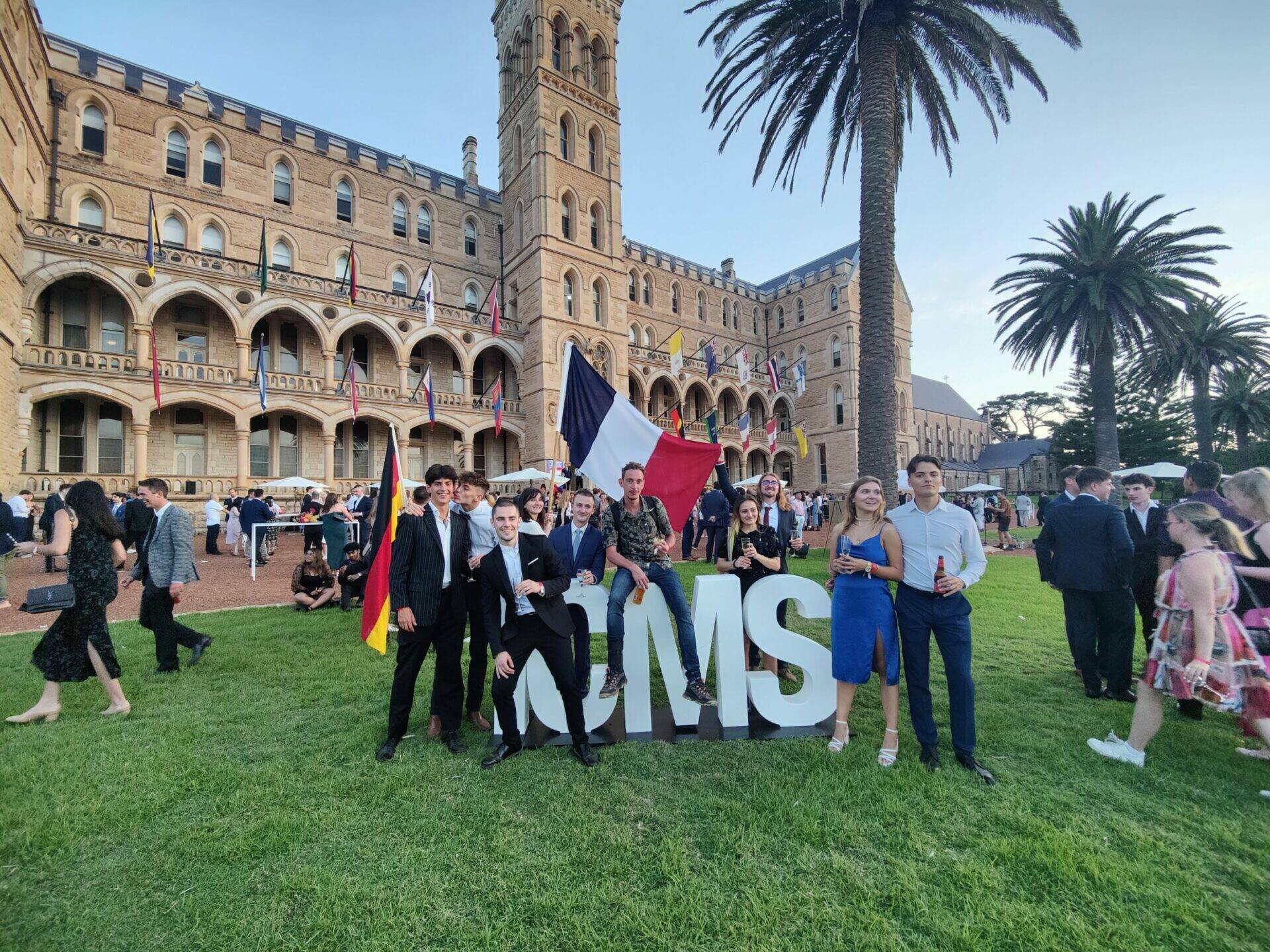Ticketing Manager
HOW TO BECOME A TICKETING MANAGER
Ticketing managers are in charge of the booking and sales of tickets for entertainment events. A long-standing profession, but one that has evolved over time.
What is ticketing?
While there used to be very few players in this market, the ticketing sector has grown considerably over the last decades. This development owes much to the French people’s marked taste for entertainment and sporting events, but also to the rise of digital technology.
A few years back, a new distribution channel emerged: electronic ticketing. Although physical sales still account for 85% of the market, electronic tickets, legalized in 2007, are gradually replacing paper tickets. While physical ticketing is still on the increase, online ticket sales are soaring, with an annual growth of 15 to 20%. And with good reason: more than half of the French people buy their tickets online!
With the proliferation of online ticket management platforms, competition is increasingly fierce. Despite the monopoly held by some companies on the market, such as the behemoth Fnac Spectacles, more and more newcomers are challenging existing players.
What are the duties of a ticketing manager?
As the main intermediary between the company and the public, ticketing managers organize, optimize and coordinate ticket booking and sales for shows and sporting events.
They may work for various types of organizations, such as:
- professional clubs,
- sporting event organizers,
- public service delegations,
- agencies,
- local authorities.
They are responsible for ticketing strategy and planning. In addition, they are in charge of setting up the ticketing software and checking all installations and equipment. On a regular basis, ticketing managers monitor sales with the sales department, draw up reports on the number of visitors to the site and organize promotional or communication campaigns where necessary. In addition, they participate in negotiations with their agency’s partners and resellers. They regularly report to their line manager on their department’s progress.
As team heads, ticketing department managers recruit, train and support ticketing agents who work under their supervision. As such, they also regularly check the cash registers to draw up reports. For optimum communication, they take great care to ensure that important information is passed on to the public by the staff. They sometimes help their colleagues welcome the public and manage ticket offices. When their team receives a complaint, ticketing managers handle any refunds in compliance with applicable rules. Naturally, they are also responsible for closing the ticket office at the end of the season.
Key qualities and skills required of ticketing managers
To successfully perform in their role, ticketing managers must demonstrate a variety of skills and qualities. Most importantly, they should be versatile. Good interpersonal skills are obviously mandatory. Because they deal directly with teams that can include up to a dozen employees and are in regular contact with other departments (sales, accounting, management, etc.), communication skills are essential to the role, as well as a taste for teamwork. Good interpersonal skills will of course be useful when communicating with colleagues, but not only. As they are in regular contact with customers, a ticketing manager with a welcoming and diplomatic attitude is a valuable asset to her or his company.
Directly responsible for the box office’s financial results, reception and ticketing managers are salespeople at heart, with a flair for figures. Because they are in charge of the administrative management of their department, they must demonstrate basic skills in accounting and law, they are not afraid of managing key accounts, and they must keep abreast of ticketing legislation. Knowledge of human resources is a plus to recruit the right people and properly manage a team.
As good leaders, ticketing managers must demonstrate excellent team management skills. This means they must be able to motivate the employees and temps they recruit, and clearly communicate orders and share knowledge. If they regularly tally their agency’s profits, they’ll be less likely to keep track of their working hours. Flexible, such as project managers, they must often adapt to variable ticket office opening hours and are regularly called upon to work weekends, evenings and even public holidays.
Of course, a sound knowledge of sports culture is essential to this role. The world of sports attracts fans from all over the world. For both national and international events such as the Olympic Games, ticketing managers must be able to attend to the public in every possible way, which is why it’s important to be fluent in one or more foreign languages. Hence, fluent English is a real asset.
Finally, with ticketing becoming increasingly digitalized, successful ticketing managers are expected to have sound knowledge of office software applications and the management of dedicated software. Fully operational, they wear the hats of both maintenance manager and technical manager, and use tools such as Vivateck gts V5 or GAT3. In short, they are responsible for the proper operation of all the software used by the ticketing department.
Salary range and career prospects
Entry level ticket managers can expect a gross monthly salary between €2,000 and €2,500. Candidates may also start working as front desk agents and work their way up to this position. In fact, companies posting ticketing manager job vacancies generally require of candidates at least one- or two-years’ experience in the same field. When a position is available, contracts offered are typically open-ended or fixed-term, full-time positions, although in some cases employers may consider temp work when advertising vacancies.
After several years’ experience as a ticketing manager, it may be possible to move up to a similar position such as marketing manager or reception manager. Those who work for large agencies or clubs will have opportunities to transfer to restocking and events management working as sales managers, for example.
What qualifications are required to become a ticketing manager?
There is no specific higher education qualification that will enable you to become a ticketing and reception manager. However, it is advisable to follow a course in tourism, foreign languages, business or sports management.
A Bac+2 or Bac+3 diploma, such as a BTS or Bachelor’s degree, may be sufficient. But you can also go on to study for a master’s degree in sport business.
As far as recruitment is concerned, bear in mind that before finding a job as a manager, you’ll probably need to spend one or two years working as a ticketing or booking agent, so you’ll need to have some initial significant experience in the events and sports sector, usually in direct contact with customers and in the field.
While there used to be very few players in this market, the ticketing sector has grown considerably over the last decades. This development owes much to the French people’s marked taste for entertainment and sporting events, but also to the rise of digital technology.
A few years back, a new distribution channel emerged: electronic ticketing. Although physical sales still account for 85% of the market, electronic tickets, legalized in 2007, are gradually replacing paper tickets. While physical ticketing is still on the increase, online ticket sales are soaring, with an annual growth of 15 to 20%. And with good reason: more than half of the French people buy their tickets online!
With the proliferation of online ticket management platforms, competition is increasingly fierce. Despite the monopoly held by some companies on the market, such as the behemoth Fnac Spectacles, more and more newcomers are challenging existing players.
As the main intermediary between the company and the public, ticketing managers organize, optimize and coordinate ticket booking and sales for shows and sporting events.
They may work for various types of organizations, such as:
- professional clubs,
- sporting event organizers,
- public service delegations,
- agencies,
- local authorities.
They are responsible for ticketing strategy and planning. In addition, they are in charge of setting up the ticketing software and checking all installations and equipment. On a regular basis, ticketing managers monitor sales with the sales department, draw up reports on the number of visitors to the site and organize promotional or communication campaigns where necessary. In addition, they participate in negotiations with their agency’s partners and resellers. They regularly report to their line manager on their department’s progress.
As team heads, ticketing department managers recruit, train and support ticketing agents who work under their supervision. As such, they also regularly check the cash registers to draw up reports. For optimum communication, they take great care to ensure that important information is passed on to the public by the staff. They sometimes help their colleagues welcome the public and manage ticket offices. When their team receives a complaint, ticketing managers handle any refunds in compliance with applicable rules. Naturally, they are also responsible for closing the ticket office at the end of the season.
To successfully perform in their role, ticketing managers must demonstrate a variety of skills and qualities. Most importantly, they should be versatile. Good interpersonal skills are obviously mandatory. Because they deal directly with teams that can include up to a dozen employees and are in regular contact with other departments (sales, accounting, management, etc.), communication skills are essential to the role, as well as a taste for teamwork. Good interpersonal skills will of course be useful when communicating with colleagues, but not only. As they are in regular contact with customers, a ticketing manager with a welcoming and diplomatic attitude is a valuable asset to her or his company.
Directly responsible for the box office’s financial results, reception and ticketing managers are salespeople at heart, with a flair for figures. Because they are in charge of the administrative management of their department, they must demonstrate basic skills in accounting and law, they are not afraid of managing key accounts, and they must keep abreast of ticketing legislation. Knowledge of human resources is a plus to recruit the right people and properly manage a team.
As good leaders, ticketing managers must demonstrate excellent team management skills. This means they must be able to motivate the employees and temps they recruit, and clearly communicate orders and share knowledge. If they regularly tally their agency’s profits, they’ll be less likely to keep track of their working hours. Flexible, such as project managers, they must often adapt to variable ticket office opening hours and are regularly called upon to work weekends, evenings and even public holidays.
Of course, a sound knowledge of sports culture is essential to this role. The world of sports attracts fans from all over the world. For both national and international events such as the Olympic Games, ticketing managers must be able to attend to the public in every possible way, which is why it’s important to be fluent in one or more foreign languages. Hence, fluent English is a real asset.
Finally, with ticketing becoming increasingly digitalized, successful ticketing managers are expected to have sound knowledge of office software applications and the management of dedicated software. Fully operational, they wear the hats of both maintenance manager and technical manager, and use tools such as Vivateck gts V5 or GAT3. In short, they are responsible for the proper operation of all the software used by the ticketing department.
Entry level ticket managers can expect a gross monthly salary between €2,000 and €2,500. Candidates may also start working as front desk agents and work their way up to this position. In fact, companies posting ticketing manager job vacancies generally require of candidates at least one- or two-years’ experience in the same field. When a position is available, contracts offered are typically open-ended or fixed-term, full-time positions, although in some cases employers may consider temp work when advertising vacancies.
After several years’ experience as a ticketing manager, it may be possible to move up to a similar position such as marketing manager or reception manager. Those who work for large agencies or clubs will have opportunities to transfer to restocking and events management working as sales managers, for example.
There is no specific higher education qualification that will enable you to become a ticketing and reception manager. However, it is advisable to follow a course in tourism, foreign languages, business or sports management.
A Bac+2 or Bac+3 diploma, such as a BTS or Bachelor’s degree, may be sufficient. But you can also go on to study for a master’s degree in sport business.
As far as recruitment is concerned, bear in mind that before finding a job as a manager, you’ll probably need to spend one or two years working as a ticketing or booking agent, so you’ll need to have some initial significant experience in the events and sports sector, usually in direct contact with customers and in the field.






